
Find Help
More Items From Ergsy search
-

Who pays the inheritance tax?
Relevance: 100%
-

Do I pay Inheritance Tax on a property I inherit?
Relevance: 97%
-

Who is responsible for paying Inheritance Tax?
Relevance: 95%
-

What is the process for paying inheritance tax?
Relevance: 93%
-

When do I need to pay Inheritance Tax?
Relevance: 91%
-

Do spouses have to pay inheritance tax?
Relevance: 89%
-

Do all beneficiaries pay the same inheritance tax rate?
Relevance: 86%
-
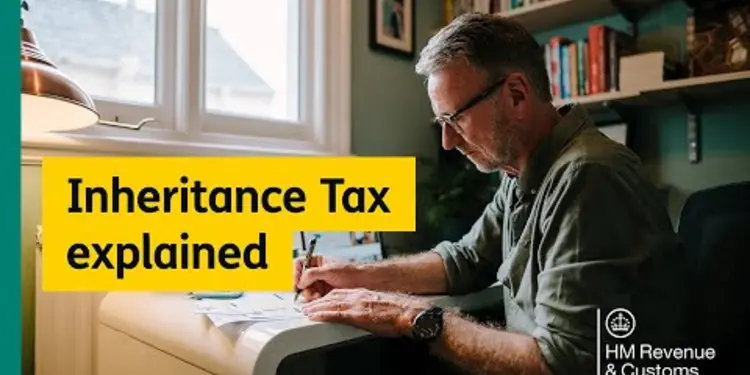
What is Inheritance Tax?
Relevance: 82%
-

What is inheritance tax in the UK?
Relevance: 81%
-
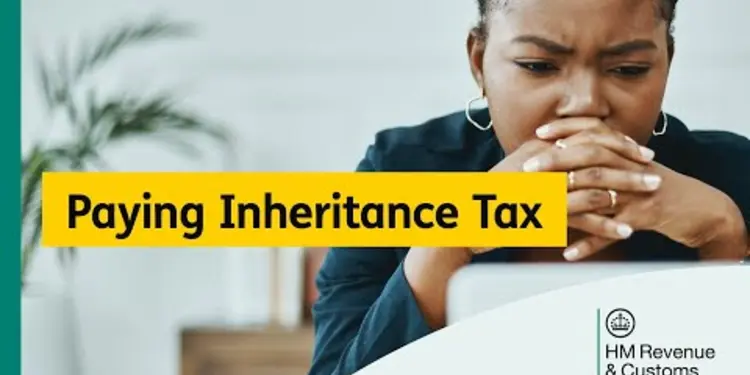
How and when do I pay Inheritance Tax when someone has died?
Relevance: 81%
-

What is Inheritance Tax?
Relevance: 79%
-

When is inheritance tax due?
Relevance: 79%
-

Is there a difference between inheritance tax and estate tax?
Relevance: 78%
-
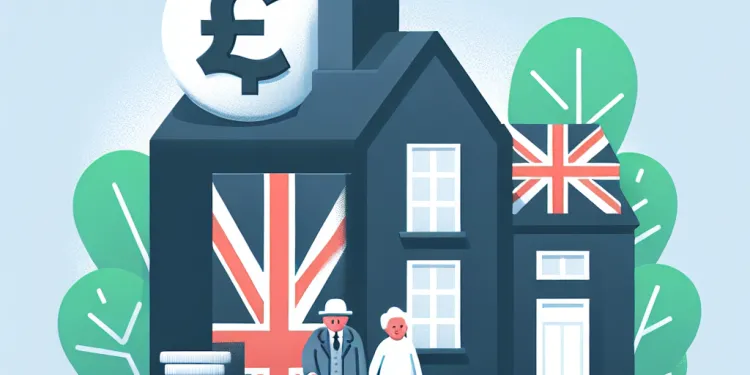
What is inheritance tax in the UK?
Relevance: 78%
-

What is inheritance tax?
Relevance: 77%
-
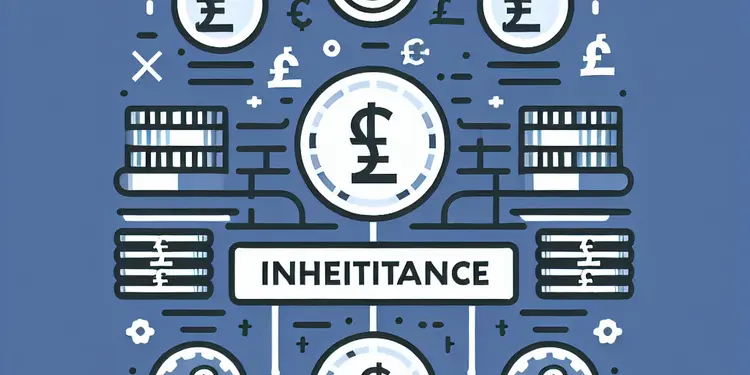
Can Inheritance Tax be paid in installments?
Relevance: 76%
-

How is inheritance tax calculated?
Relevance: 76%
-

Can inheritance tax be deferred?
Relevance: 76%
-

What happens if Inheritance Tax is not paid on time?
Relevance: 75%
-
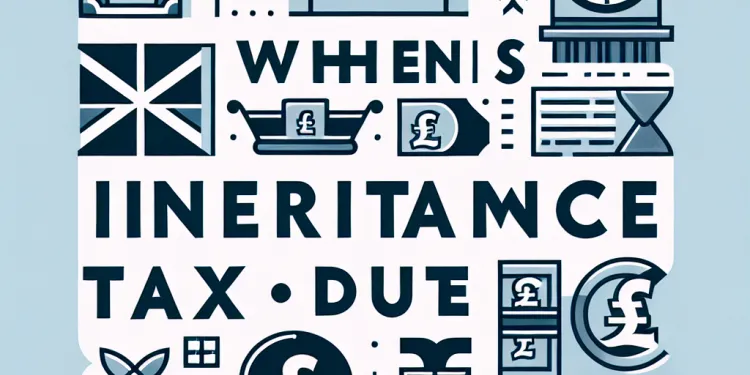
When is inheritance tax due to be paid?
Relevance: 74%
-

What happens if inheritance tax is not paid?
Relevance: 74%
-

Are there tax-free thresholds for inheritance tax?
Relevance: 73%
-

Are there deductions available for inheritance tax?
Relevance: 72%
-

Does owning property abroad affect UK inheritance tax?
Relevance: 69%
-

What assets are subject to inheritance tax?
Relevance: 68%
-
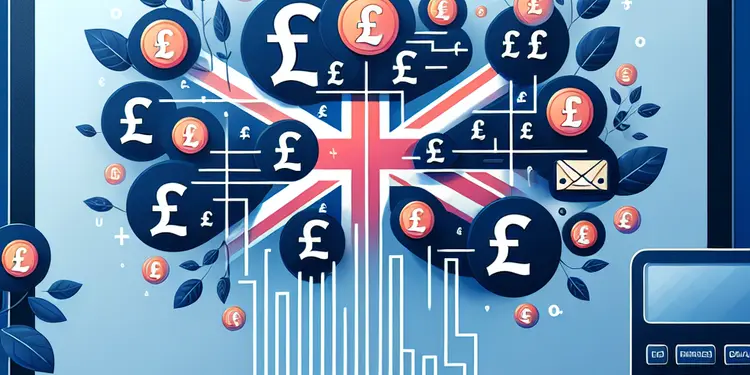
How is the Inheritance Tax bill calculated?
Relevance: 68%
-

Are there any exemptions from inheritance tax?
Relevance: 67%
-
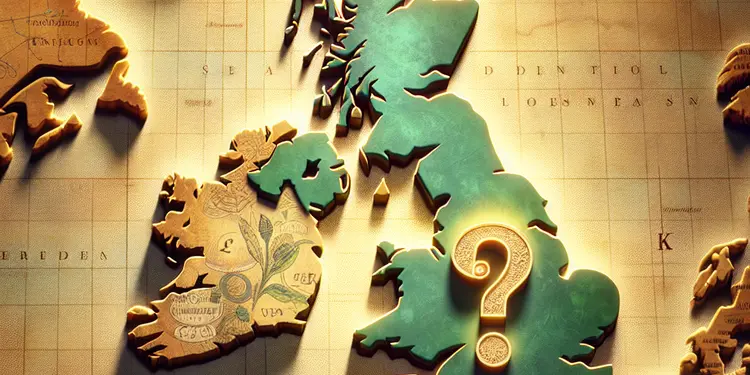
Which countries impose inheritance tax?
Relevance: 67%
-

Does inheritance tax vary by state or region?
Relevance: 66%
-
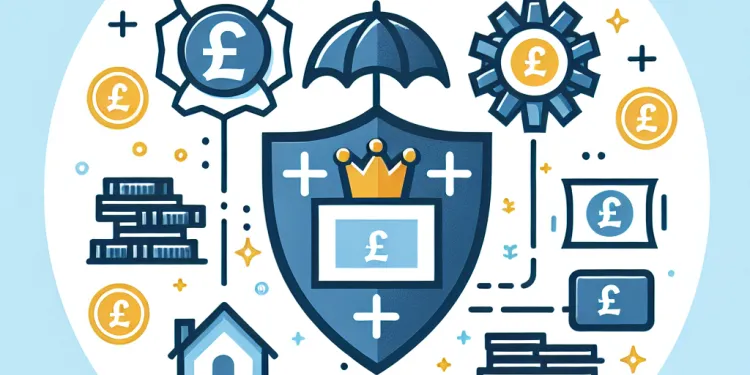
How is Inheritance Tax (IHT) dealt with after death?
Relevance: 66%
-

What is the seven-year rule relating to inheritance tax?
Relevance: 66%
-
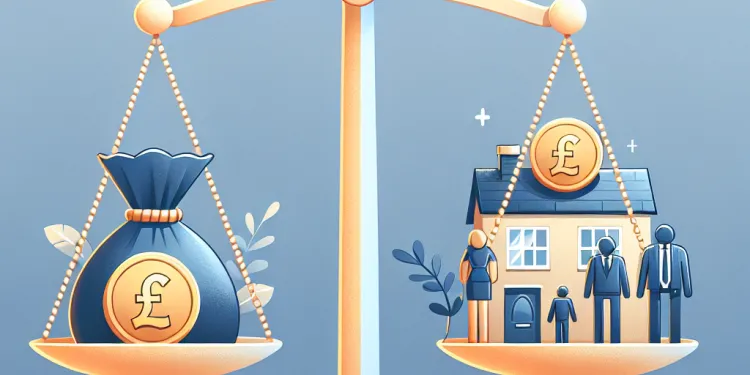
Do unpaid tax debts affect Inheritance Tax calculations?
Relevance: 66%
-

Are there professional advisors for inheritance tax planning?
Relevance: 65%
-

Is it possible to reduce the Inheritance Tax bill?
Relevance: 65%
-

Can Inheritance Tax be claimed back?
Relevance: 64%
-

Does the value of gifts affect Inheritance Tax?
Relevance: 64%
-

Are life insurance payouts subject to Inheritance Tax?
Relevance: 63%
-
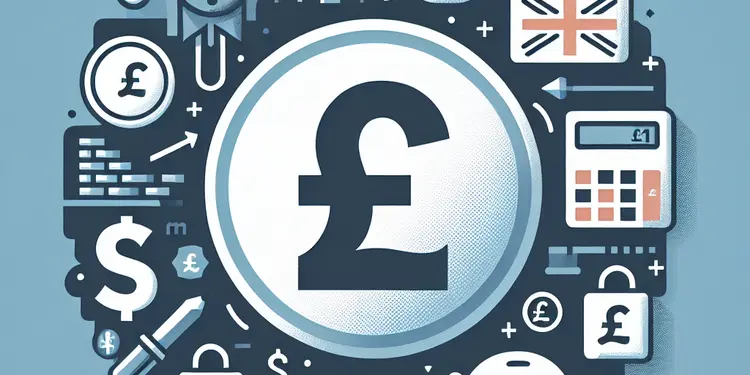
Are there any exemptions or reliefs available for Inheritance Tax?
Relevance: 63%
-

Can an inheritance tax bill be challenged or appealed?
Relevance: 63%
-

Who is responsible for paying the deceased’s tax debts?
Relevance: 63%
Understanding Inheritance Tax
Inheritance Tax (IHT) is a tax on the estate of someone who has passed away, including all property, possessions, and money. In the UK, an estate is liable for IHT if its value exceeds the current threshold, which is set at £325,000 for the 2023/2024 tax year. The standard rate of inheritance tax is 40%, but it’s only charged on the part of the estate that’s above the threshold.
When is Inheritance Tax Due?
Inheritance Tax must be paid by the end of the sixth month after the person’s death. If it is not paid by then, HM Revenue and Customs (HMRC) may start charging interest on the amount owed. It's also possible to pay IHT in installments over 10 years on certain assets, such as businesses or property, while the rest of the estate can be paid as soon as possible.
Steps to Pay Inheritance Tax
The process starts with valuing the estate. It involves listing all the assets of the deceased, such as cash, properties, and investments, and subtracting any debts and liabilities. Once the net estate value is calculated, it is compared against the IHT threshold to determine the tax owed.
The executor or personal representative of the estate is responsible for ensuring the tax is calculated correctly and paid. It is essential to get the valuation right to avoid underpaying or overpaying IHT. Professional valuations might be necessary for certain assets like property and valuable items.
Ways to Pay Inheritance Tax
You can pay IHT using a direct payment scheme, where funds from the deceased’s bank account are used to cover the tax owing. This is often the easiest method. Alternatively, IHT can be paid from the personal funds of the executor or beneficiaries. After the tax is paid, they can be reimbursed from the estate funds.
It's important to fill out the correct forms when declaring the inheritance tax. You typically need to complete an IHT400 form and related schedules if the estate owes IHT. These forms should be sent to HMRC with the payment and must include detailed information about the estate's assets and liabilities.
Considerations and Advice
While dealing with inheritance tax can be complex and time-consuming, it is crucial to meet deadlines and stay informed throughout the process. If you're an executor or a beneficiary responsible for sorting out an estate, it might be worthwhile to seek professional advice, especially for large or complicated estates. Getting it wrong could result in penalties or even legal difficulties.
What is Inheritance Tax?
Inheritance Tax is money you pay on what someone leaves behind when they die, like their house and money. In the UK, you pay this tax if what they leave is worth more than £325,000. The tax rate is 40% on anything over that amount.
When Do You Pay Inheritance Tax?
You need to pay this tax within six months after the person has died. If you don't pay in time, you might have to pay extra money for being late. You can also pay it bit by bit over 10 years for things like a business or house. But, try to pay the rest as soon as you can.
How to Pay Inheritance Tax
First, you need to find out how much everything the person owned is worth. List everything like their money, house, and any other things they owned. Take away any money they owed. Next, see if what they owned is more than the £325,000 limit.
The person in charge of sorting out the things left behind, called an executor, needs to make sure the right amount of tax is paid. It's important to get this right, so you might need to ask an expert to help, especially with things like house value.
Ways to Pay Inheritance Tax
You can pay the tax directly from the bank account of the person who died. This is usually the easiest way. You can also pay from your own money and get paid back later from what’s left.
It’s important to fill in the right forms when you pay this tax. You usually need to fill out a form called IHT400 to tell HMRC how much everything is worth and how much tax you need to pay.
Things to Think About
Dealing with inheritance tax can be hard and take a long time. It’s really important to pay on time and know what you need to do. If you’re in charge, and it’s a big or complicated estate, it might be good to ask a professional for help. Getting it wrong could mean you have to pay more or could get in trouble.
Frequently Asked Questions
What is inheritance tax?
Inheritance tax is a tax on the estate (property, money, and possessions) of someone who has died.
Who is responsible for paying inheritance tax?
The executor or personal representative of the deceased's estate is responsible for paying inheritance tax.
When is inheritance tax due?
Inheritance tax is usually due within six months of the person’s death.
What happens if inheritance tax is not paid on time?
Penalties and interest may be charged if inheritance tax is not paid by the due date.
How can inheritance tax be paid?
Inheritance tax can be paid by cheque, bank transfer, or through a professional service provider.
Is there a threshold for inheritance tax?
Yes, there is a threshold. In the UK, for example, inheritance tax is only paid on the estate's value above £325,000.
Are there any exemptions from inheritance tax?
Certain assets and transfers might be exempt, such as those left to a spouse or charity.
Can inheritance tax be paid in installments?
Yes, in some cases, depending on the circumstances and types of assets involved, payment can be made in installments.
How is the value of the estate calculated?
The value of all the deceased’s assets, minus liabilities, determines the estate's value.
What is the rate of inheritance tax?
The rate can vary; in the UK, it is often 40% on the value above the threshold.
Can gifts made before death affect inheritance tax?
Yes, gifts given in the 7 years before death may be subject to inheritance tax.
Is there relief available for business or agricultural property?
Yes, business and agricultural reliefs can reduce the value of the estate for inheritance tax purposes.
How is inheritance tax affected by trusts?
Trusts can affect how inheritance tax is calculated, and specific rules apply to different types of trusts.
Can lifetime gifts be exempt from inheritance tax?
Yes, some lifetime gifts are exempt, like annual exemptions and gifts for weddings.
What form must be submitted to report inheritance tax?
Form IHT400 is used in the UK to report and pay inheritance tax.
Are debts and liabilities deducted from the estate's value?
Yes, debts like mortgages can be deducted to lower the taxable estate value.
Can unused inheritance tax thresholds be transferred?
Yes, unused thresholds can often be transferred to a surviving spouse or civil partner.
What records should be kept for inheritance tax purposes?
Details of assets, liabilities, and calculations should be documented and stored safely.
Are legal and administrative fees deductible from the estate?
Sometimes, these fees might be deductible when calculating the estate’s net value.
How does international inheritance impact taxation?
International matters can complicate inheritance tax, and double taxation treaties may apply.
What is inheritance tax?
Inheritance tax is money you pay when you get money or things from someone who has died.
This tax usually applies if you inherit a lot of money or valuable things.
You can ask an adult for help to understand it better.
Inheritance tax is money you pay when someone dies. It is for the things they owned, like their house, money, or belongings.
Who has to pay inheritance tax?
The person in charge of looking after the things that someone who has died has left behind is the one who has to pay the inheritance tax.
When do you have to pay inheritance tax?
When someone dies and leaves money or things, sometimes you have to pay a tax. This tax is called inheritance tax.
Usually, this tax is paid when their money or things are given to family or friends.
Here are some tips to help understand better:
- Ask someone to explain it to you using simple words.
- Use pictures or drawings to help you understand.
Inheritance tax is money that you need to pay when someone dies. You usually have to pay this money within six months after the person has died.
What if you don't pay inheritance tax on time?
If you don’t pay inheritance tax on time, you might have to pay extra money. This extra money is called penalties and interest.
How do you pay inheritance tax?
Here are some easy steps to help:
- Find out if inheritance tax is needed. You can ask a family member or a trusted friend to help you with this.
- If tax is needed, you can pay it online, by phone, or at the bank.
- You may need a special reference number to pay the tax. Give your name and details when paying.
- It might be good to ask someone you trust to help you with the steps.
Tools that can help:
- Use a calculator to work out amounts.
- Ask someone you trust, like a friend or family member, for help understanding the steps.
- Use the internet to find more about inheritance tax.
You can pay inheritance tax using a cheque, through the bank, or by using a service that helps people with these payments.
Do you have to pay inheritance tax on everything?
Yes, there is a limit. In the UK, when someone dies, their things only have tax after £325,000.
Do I have to pay inheritance tax?
Sometimes, you don't have to pay inheritance tax. Here are some reasons why:
- The money or things you get are under a certain amount.
- The person who passed away left everything to a husband, wife, or charity.
- The person who died used special rules to give away their money before they passed.
If you are unsure, it's good to ask a grown-up or expert for help!
Some things you own and give away might not need to follow special rules, like things you give to your husband or wife, or to a charity.
Can you pay inheritance tax a bit at a time?
Yes, sometimes you can pay in small parts over time. It depends on the situation and what you are paying for.
How do you find out what an estate is worth?
To find out how much everything a person owned is worth after they pass away, you add up all their things and money, and then take away any money they owe.
What is the inheritance tax rate?
How much money do you have to pay when someone leaves you things after they die?
It's called inheritance tax.
Simple tools online can help you understand this better.
You can also ask someone you trust for help.
The rate can change; in the UK, it is often 40% on the amount over a certain limit.
Do gifts given before someone dies change the amount of inheritance tax?
If someone gives a gift and then dies within 7 years, there might be a tax on that gift when they die. This is called inheritance tax.
Can businesses or farms get help?
Yes, you can pay less inheritance tax because of business and farming reliefs. They make the amount of money that gets taxed smaller.
How do trusts change inheritance tax?
When someone dies, taxes might be owed on what they leave behind. This is called inheritance tax. A "trust" is a way to manage money or property for someone.
Trusts can change how this tax works. They can sometimes lower the tax that must be paid.
To understand this better, it helps to talk to an expert, like a tax advisor. They can explain how trusts work with taxes.
Trusts can change how the tax on money or things you leave behind is worked out. There are special rules for different kinds of trusts.
Do you have to pay tax on gifts before someone dies?
When a person gives a gift of money or things during their life, it might not need tax when they die.
Some gifts are small and do not need tax.
Tools like a calculator can help you understand more about tax.
Yes, some gifts you give while you are alive do not need tax. These include gifts you give each year and gifts for weddings.
What form do you fill out to report tax on money or things you get when someone dies?
Form IHT400 is a paper you use in the UK to tell the government about inheritance tax and to pay it.
Do we take away debts and money owed from what the estate is worth?
Yes, if you owe money like on a house loan, you can use it to make the amount of your property that can be taxed smaller.
Can you move unused inheritance tax thresholds to someone else?
Yes, if a husband, wife, or civil partner dies, the one who is still alive can often use the unused parts of their money rules.
What records should you keep for inheritance tax?
It is important to keep some records when someone passes away. These records help with taxes. Here is a simple list of what you should keep:
- Will: This is the document that says who gets what when someone dies.
- Bank Statements: Keep these to show how much money was in their accounts.
- Property Papers: These show the houses or land the person owned.
- List of Belongings: Write down valuable things like jewelry or a car.
- Bills and Debts: Keep any bills or lists of money owed by the person.
If you need help, ask a friend or family member to go through these papers with you. You can also use color-coded folders to keep everything organized. This makes it easier to find what you need later.
Keep a list of what you own and what you owe. Write down how you worked it all out. Put this information somewhere safe.
Can you take legal and admin costs from the estate money?
Sometimes, these costs might be taken off when working out how much the estate is worth.
How does getting money from another country affect taxes?
When you get money from someone in another country, like when they pass away, it might affect your taxes.
Check the tax rules to see if you need to pay any taxes in your country.
Using a calculator or asking a grown-up can help you understand better.
When different countries are involved, inheritance tax can get tricky. Sometimes, there are special agreements between countries that help. These are called double taxation treaties.
Useful Links
Have you found an error, or do you have a link or some information you would like to share? Please let us know using the form below.
-->
This website offers general information and is not a substitute for professional advice.
Always seek guidance from qualified professionals.
If you have any medical concerns or need urgent help, contact a healthcare professional or emergency services immediately.
Some of this content was generated with AI assistance. We’ve done our best to keep it accurate, helpful, and human-friendly.
- Ergsy carfully checks the information in the videos we provide here.
- Videos shown by Youtube after a video has completed, have NOT been reviewed by ERGSY.
- To view, click the arrow in centre of video.
- Most of the videos you find here will have subtitles and/or closed captions available.
- You may need to turn these on, and choose your preferred language.
- Go to the video you'd like to watch.
- If closed captions (CC) are available, settings will be visible on the bottom right of the video player.
- To turn on Captions, click settings .
- To turn off Captions, click settings again.
More Items From Ergsy search
-

Who pays the inheritance tax?
Relevance: 100%
-

Do I pay Inheritance Tax on a property I inherit?
Relevance: 97%
-

Who is responsible for paying Inheritance Tax?
Relevance: 95%
-

What is the process for paying inheritance tax?
Relevance: 93%
-

When do I need to pay Inheritance Tax?
Relevance: 91%
-

Do spouses have to pay inheritance tax?
Relevance: 89%
-

Do all beneficiaries pay the same inheritance tax rate?
Relevance: 86%
-

What is Inheritance Tax?
Relevance: 82%
-

What is inheritance tax in the UK?
Relevance: 81%
-

How and when do I pay Inheritance Tax when someone has died?
Relevance: 81%
-

What is Inheritance Tax?
Relevance: 79%
-

When is inheritance tax due?
Relevance: 79%
-

Is there a difference between inheritance tax and estate tax?
Relevance: 78%
-

What is inheritance tax in the UK?
Relevance: 78%
-

What is inheritance tax?
Relevance: 77%
-

Can Inheritance Tax be paid in installments?
Relevance: 76%
-

How is inheritance tax calculated?
Relevance: 76%
-

Can inheritance tax be deferred?
Relevance: 76%
-

What happens if Inheritance Tax is not paid on time?
Relevance: 75%
-

When is inheritance tax due to be paid?
Relevance: 74%
-

What happens if inheritance tax is not paid?
Relevance: 74%
-

Are there tax-free thresholds for inheritance tax?
Relevance: 73%
-

Are there deductions available for inheritance tax?
Relevance: 72%
-

Does owning property abroad affect UK inheritance tax?
Relevance: 69%
-

What assets are subject to inheritance tax?
Relevance: 68%
-

How is the Inheritance Tax bill calculated?
Relevance: 68%
-

Are there any exemptions from inheritance tax?
Relevance: 67%
-

Which countries impose inheritance tax?
Relevance: 67%
-

Does inheritance tax vary by state or region?
Relevance: 66%
-

How is Inheritance Tax (IHT) dealt with after death?
Relevance: 66%
-

What is the seven-year rule relating to inheritance tax?
Relevance: 66%
-

Do unpaid tax debts affect Inheritance Tax calculations?
Relevance: 66%
-

Are there professional advisors for inheritance tax planning?
Relevance: 65%
-

Is it possible to reduce the Inheritance Tax bill?
Relevance: 65%
-

Can Inheritance Tax be claimed back?
Relevance: 64%
-

Does the value of gifts affect Inheritance Tax?
Relevance: 64%
-

Are life insurance payouts subject to Inheritance Tax?
Relevance: 63%
-

Are there any exemptions or reliefs available for Inheritance Tax?
Relevance: 63%
-

Can an inheritance tax bill be challenged or appealed?
Relevance: 63%
-

Who is responsible for paying the deceased’s tax debts?
Relevance: 63%


